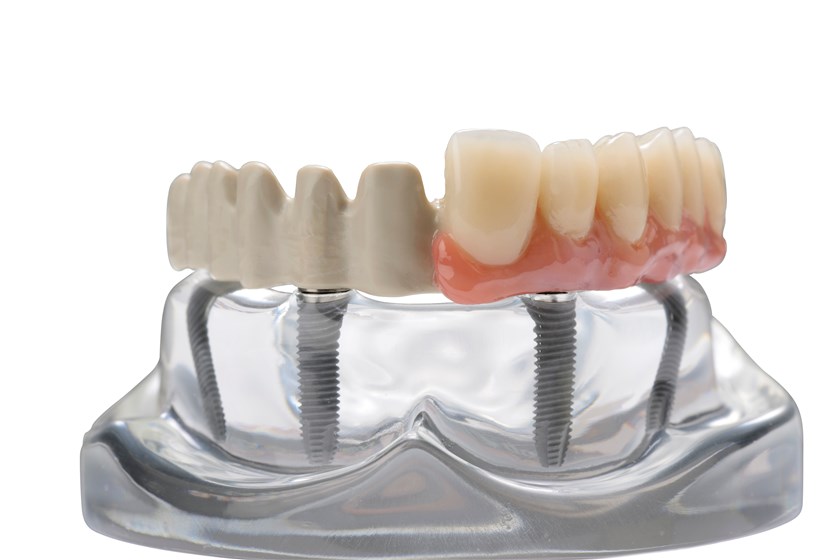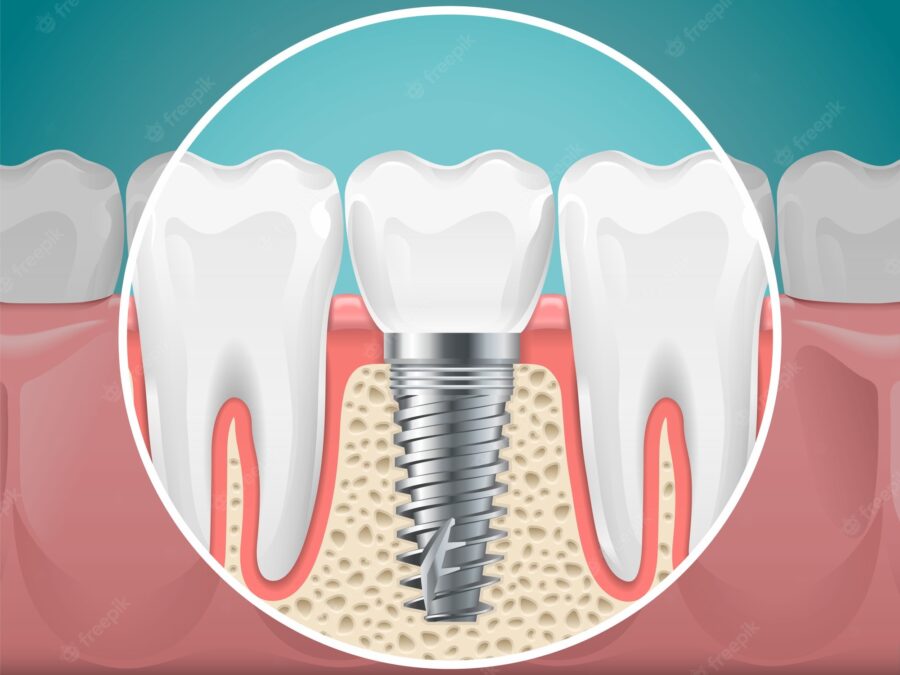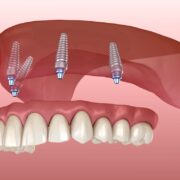You may have heard about dental implants and wondered what they are. These are synthetic structures that are inserted into the jaw bones to support artificial teeth and make them appear like natural ones. Implants can be used to replace missing teeth, prevent bone deterioration by providing artificial support for your gums when you don’t have any natural teeth left, or even just improve your smile by making it look more symmetrical and healthy. Not all patients are ideal candidates for dental implant procedures, however, as there are certain criteria that need to be met. This article will cover everything from who should not get a dental implant to the cost of treatment so you can decide if they’re right for you.
What is a dental implant?
A dental implant is a synthetic structure that is surgically placed into the jaw. These are anchored to the bone permanently, so they don’t need to be removed or cleaned. Implants can be used to support artificial teeth and make them appear like natural ones. This is especially useful if you are missing teeth due to injury or decay and want to replace them without having to wear dentures.

Implants can be placed in your upper or lower jaw, or both, and they will fuse with the jawbone over time. This makes them incredibly durable and long-lasting. The only parts of the dental implants that are visible are the posts that are attached to the teeth. This makes them ideal for patients who want to keep their smile looking natural but still need support for their gums.
Why do you need dental implants?
Dental implants are a great option for patients who are missing teeth or want to replace older ones. They can help you maintain your oral health and prevent infection and disease. While this is generally true in the long term, there is a period of time during the healing process when you will be more susceptible to illnesses and infections because of the open sores in your mouth.
This is why you will likely experience some pain and discomfort during implant placement and healing. You may have some swelling and bruising in your gums and mouth, as well as a dry mouth and difficulty chewing food until your gums heal. The benefits of dental implants are definitely worth a couple of weeks of discomfort!
Who is a good candidate for dental implants?
Anyone who has one or more missing teeth in their mouth is a potential candidate for dental implants. However, there are a few factors that will determine if you are a good candidate for the procedure.
- Age – Younger patients can definitely get dental implants, but they need to be aware that they may face longer healing times. The older you are, the more likely your body is to heal.

- Health – Patients with poor immune systems, diabetes, or other metabolic disorders often find that their bodies heal more slowly and don’t respond well to treatment. This may result in complications during and after implant placement, leading to a less effective result.
Should you get a dental implant?
If you are missing teeth due to injury or decay, you should consider getting dental implants. First, you will need to find a good surgeon. You can do this by searching online for implant surgeons in your area. Once you’ve found a few candidates, make an appointment to visit them. This will let you get a feel for their office and evaluate their skills.
Once you’ve chosen a surgeon. You’ll go through a few more steps to decide what type of implant is best for you. You’ll need to have enough healthy jawbones to support a dental implant. So you may have to undergo a bone graft procedure before the surgery. You’ll also need to make sure that there are no underlying health conditions (like diabetes) that will affect the healing process.
Procedure: how dental implants are placed?
Depending on the type of implant you get. You may need to get your gums surgically prepared before they are actually placed. This will allow them to heal properly and prevent infection. The first step in getting a dental implant is finding a dentist who has experience with the procedure and makes patients feel comfortable and relaxed. You will then have to go through an oral exam to make sure that you are a good candidate for implants.

Your dentist will use x-rays and photos to get a clear view of your mouth and teeth and determine the best placement. You may also have to get an MRI. Once your teeth have been prepared and placed. You will have to wait for them to heal before you can get teeth attached. This process can take several months.
Finding the right dentist to perform the procedure
As we’ve discussed, there are a few things you should keep in mind when choosing a dental implant surgeon. You can start your search online and use review sites like Google My Business to narrow down your options. Once you’ve found a few dental clinics in your area. You can then visit their websites or make appointments with them to evaluate their skills and experience.
So you know that your treatment will be performed in a safe. Sanitary environment. When you visit the offices. Make sure to ask the dentist about their experience with dental implants. And any complications that may arise during the procedure.
Conclusion
Dental implants are synthetic structures that are placed in a patient’s jawbone to support artificial teeth and make them appear like natural ones. This is especially useful if you are missing teeth due to injury or decay and want to replace them without having to wear dentures. Implants can be placed in your upper or lower jaw, or both, and they will fuse with the jawbone over time. This makes them incredibly durable and long-lasting. The only parts of the dental implants that are visible are the posts that are attached to the teeth. This makes them ideal for patients who want to keep their smile looking natural but still need support for their gums. Keep in mind that dental implants are not right for everyone. So it’s important to speak with your dentist to see if they are the right treatment option for you.






